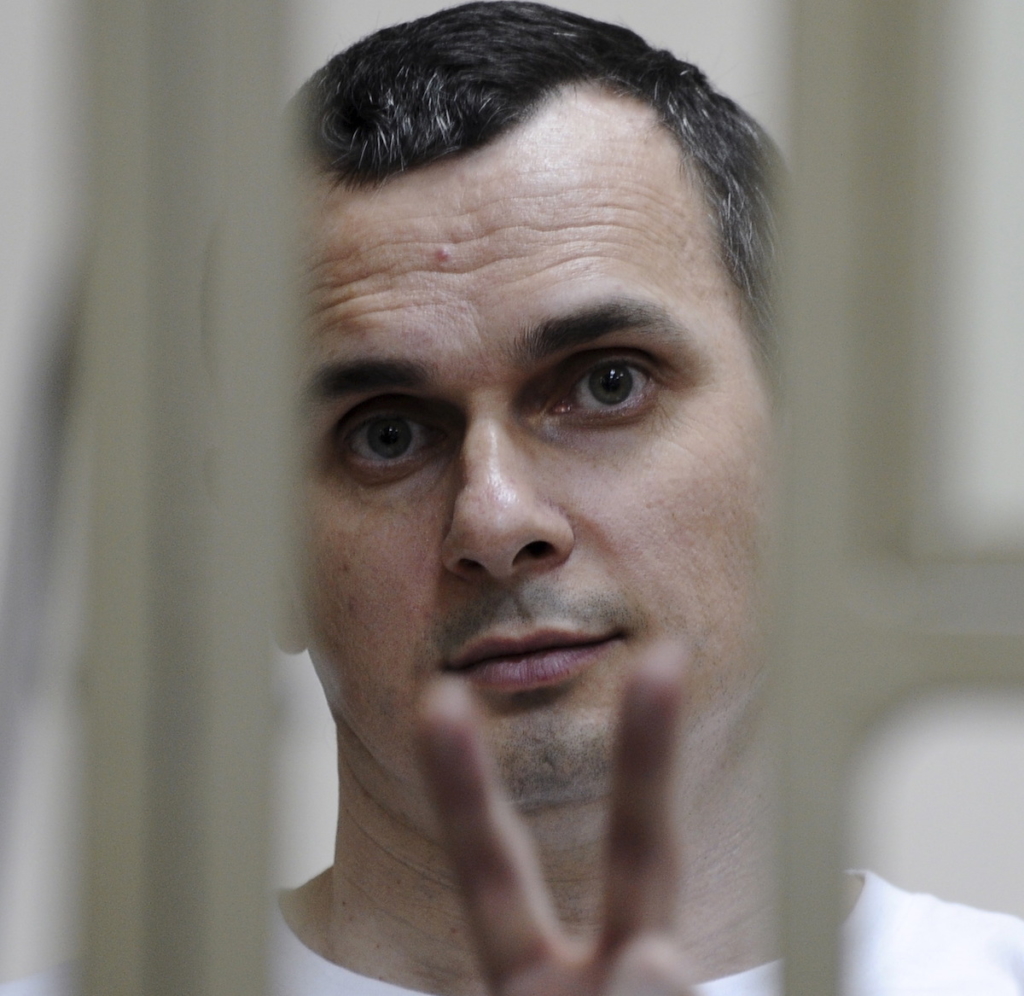Ukrainian political prisoners in Russia may be exchanged for Russians in Ukraine

Ukraine is ready for a transfer of Russian citizens who were arrested or convicted in Ukraine in exchange for the release of Ukrainian prisoners in Russia, as well as Ukraine’s disputed territories, the so-called Donetsk People’s Republic and the Lugansk People’s Republic, the Ukrainian newspaper Segodnya reports.
The news came from the first vice-speaker of the Verkhovna Rada (Ukraine’s higher parliamentary chamber) and the representative of Ukraine in the tripartite contact group for Donbass region, Irina Gerashchenko on 2 July.
She presented a list of 23 Russian citizens whom Ukraine is ready to hand over, adding that Kiev “expects the release of Sentsov, Kolchenko, Sushchenko, Grib, Balukh, Panov, our children who are being held in the occupied Donbass.”
The Federation Council of Russia allows the possibility of an exchange of Sentsov for Russian prisoners:
“I think Sentsov can be [on the exchange list]. The subject of his exchange has been repeatedly raised by the Ukrainian side, his surname is still relevant (for exchange),” the representative of the Federation Council, Andrei Kondratiev, said.
Ukrainian film director Oleg Sentsov continues his hunger strike in a Russian prison for over a month and a half.
In 2015, he was convicted on charges of preparing and conducting terrorist attacks only on the basis of the testimony of one witness who was previously a suspect. The Russian authorities have ignored his hunger strike.
Sentsov is one of some 70 Ukrainian political prisoners currently held in Russia listed by journalists and human rights activists.
T
he full number of Russian prisoners in Ukraine is unknown. Presumably, there are about 300 Russian citizens in custody there. The number of convicted Russians on “war” charges ranges from 19 to several dozen, the Russian “Novaya Gazeta” writes.
The correspondent of Novaya Gazeta talked with Olga Reshetilova, coordinator of the Ukrainian human rights organization Media Initiative for Human Rights, which has been holding rallies under the slogan “Take Your Own – Give Our Own!”.
According to Reshetilova, the Ukrainian special services try to keep the information about Russians prisoners in Ukraine secret. Reshetilova explains that, according to the authorities, openness and transparency of information in this situation will only damage the negotiations.
Reshetilova does not agree with this position. She believes that publicity is the most important factor that can bring the release to fruition. Thus, says Reshetilova, it was the fame of Nadezhda Savchenko that largely brought on her release.
After the ombudswomen of Ukraine and Russia, Lyudmila Denisova and Tatiana Moskalkova, agreed to visit 34 prisoners in both countries, the Media Initiative began to receive more information. If before that, says Reshetilova, the names and details of the criminal cases of 22 Russian prisoners were known, now they know 25, and the list continues to grow.
The main task of the “Media Initiative” is to gather information about Russian prisoners in Ukraine to strengthen Kiev’s negotiating positions. Reshetilova says that the list in her organization’s possession was compiled in the last six months and was sent to various Ukrainian diplomats.
Human rights defenders tried to keep this list non-public, but now, when the situation is critical, it is necessary to give maximum publicity to the case.



















